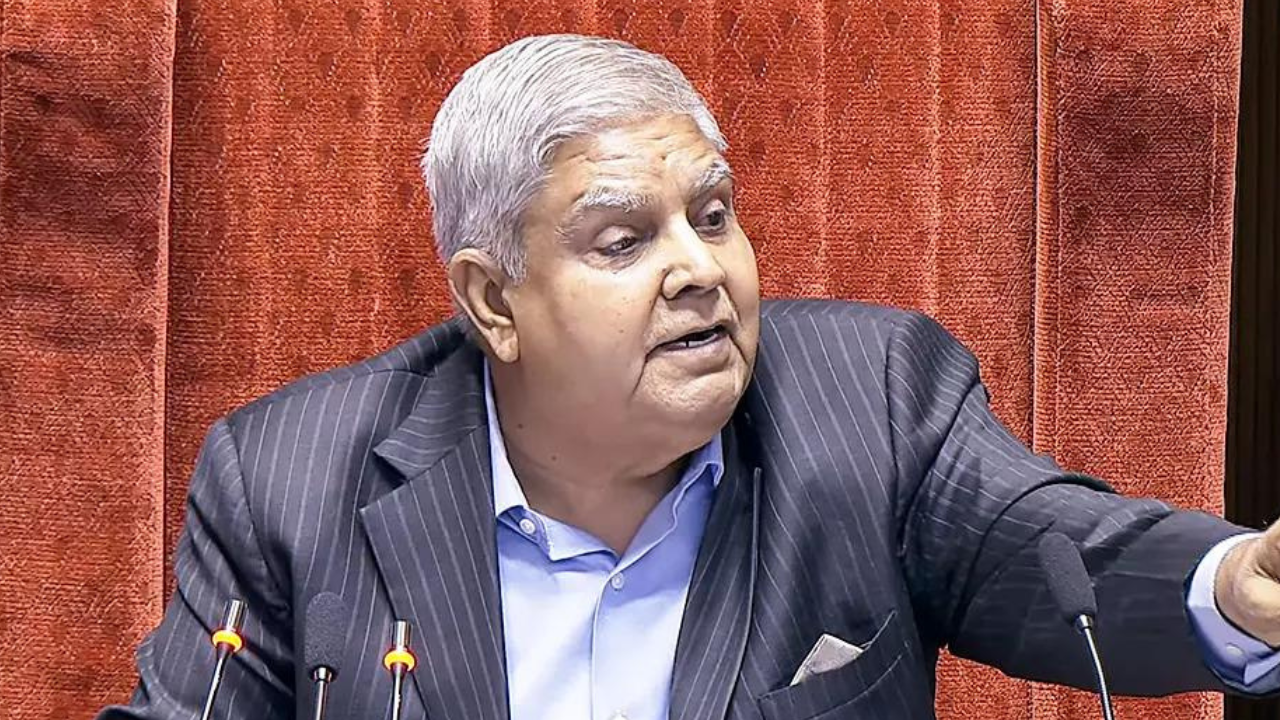Is the Rajya Sabha Headed for a Constitutional Crisis? Opposition Seeks Vice President's Removal
Get ready for some serious political fireworks! India's political landscape is heating up as the opposition threatens to initiate proceedings to remove Vice President Jagdeep Dhankhar from office. This dramatic move follows escalating tensions between Dhankhar and the opposition INDIA bloc, leading to a potential constitutional crisis. What's behind this explosive development? Buckle up, because it involves accusations of bias, controversial allegations, and a clash of political titans.
The Opposition's Explosive Move: Unprecedented Attempt to Oust the Vice President
The opposition, led by the Congress, isn't pulling any punches. They're gathering support from key members of the INDIA bloc—parties like the TMC, Samajwadi Party, and AAP—to submit a resolution for Dhankhar's removal. This is a bold move, as it invokes Article 67(b) of the Constitution, which details the procedure for removing the Vice President. The process involves a majority vote in the Rajya Sabha, a subsequent agreement from the Lok Sabha, and a mandatory 14-day notice period. This high-stakes game of political chess demands more than just a simple majority; it requires strong, organized coalition efforts.
Why Now? The Triggering Incident in the Rajya Sabha
While signatures were gathered earlier, the opposition held back, giving Dhankhar what they termed “another chance.” However, recent events in the Rajya Sabha pushed the opposition to proceed. This escalated the confrontation, making the situation unsustainable from the opposition's viewpoint. What prompted this dramatic shift? The claim is that Dhankhar's conduct in handling recent debates fueled a breakdown of trust, providing what the opposition views as irrefutable evidence to pursue their cause.
The Soros-Congress Link Allegations: Fueling the Fire
The situation took a turn when BJP leader JP Nadda accused the Congress of links with the Forum of Democratic Leaders in the Asia-Pacific (FDL-AP). The accusation included the involvement of the Rajiv Gandhi Foundation and the controversial billionaire philanthropist, George Soros. This highly-charged accusation instantly set off a series of explosive arguments.
Clash of Narratives: National Security vs. Diversion Tactics
The BJP framed this issue as a threat to national security and demanded an immediate debate in the Parliament. This triggered a huge uproar as Congress and the INDIA Bloc responded vehemently, accusing the BJP of using this as a tactic to divert attention from other pertinent issues, thus adding fuel to the ever-increasing intensity of the political struggle. Members debated intensely regarding how to properly address and fairly address the highly controversial accusation.
The Adani Issue and Dhankhar's Role: A Question of Fairness?
Amidst the chaos, Congress leader Jairam Ramesh voiced concern over what he saw as Dhankhar's unfair handling of parliamentary proceedings, suggesting this move was to intentionally deflect attention from controversies surrounding the Adani Group, triggering accusations of a bias and unfair allocation of time on the floor. Ramesh highlighted the contradictory actions, noting Dhankhar previously rejected similar notices but then allowed the raising of the same subject under different parliamentary proceedings, drawing charges of bias.
Accusations of Bias: The Opposition's Central Claim
The opposition contends that the BJP's allegations about the FDL-AP, while being incredibly explosive, served as a means to shift public scrutiny from the broader controversies plaguing the Adani Group, highlighting the contentious situation of the ongoing clash between opposition and the ruling party.
What Happens Next: The Road Ahead
The parliament's adjournment doesn't signal the end of this high-stakes political game. With the official submission of the resolution, the stage is set for a potential constitutional crisis, especially given that Article 67 of the Indian Constitution provides for impeachment proceedings. The opposition must collect a certain number of signatures of approval to set these proceedings in motion. Should the Lok Sabha approve the measure, it may usher in a series of unprecedented actions within India's political atmosphere. This ongoing conflict raises critical concerns regarding fairness, bias, and potentially a significant clash over power.
Take Away Points
- The opposition's move to remove Vice President Jagdeep Dhankhar marks an unprecedented escalation in India's political climate.
- The allegations surrounding the Congress and George Soros have heightened tensions and added to the drama.
- The clash over the Adani Group controversy underlies the broader political context of the situation.
- The parliamentary process involved in removing the Vice President is a complex one.
- The next few weeks promise a dramatic political showdown with potentially far-reaching consequences.









